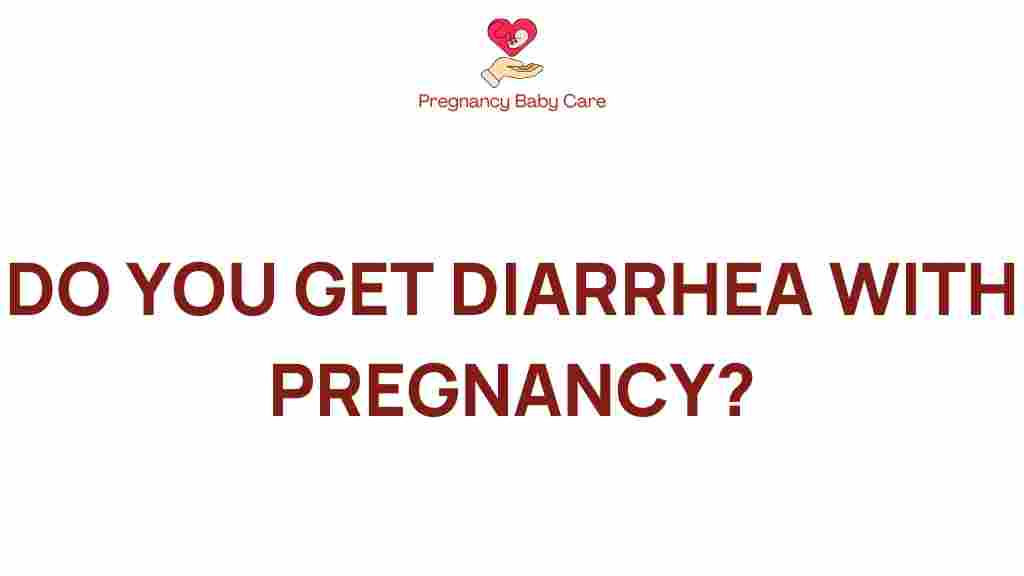The Surprising Connection Between Pregnancy and Digestive Issues
Pregnancy is a beautiful journey filled with anticipation and excitement. However, it can also bring about various symptoms that can be quite uncomfortable. One of the lesser-known aspects of pregnancy is the connection between pregnancy and digestive issues. Many expectant mothers experience gastrointestinal issues, including diarrhea, which can significantly impact their digestive health and overall maternal health. In this article, we will explore the common digestive issues during pregnancy, their causes, and effective management strategies to alleviate pregnancy discomfort.
Understanding Pregnancy Symptoms and Digestive Health
During pregnancy, a woman’s body undergoes numerous changes, and these changes can affect the digestive system. Some common pregnancy symptoms related to digestive health include:
- Nausea and vomiting
- Heartburn
- Constipation
- Diarrhea
- Bloating
- Gas
Among these symptoms, diarrhea can be particularly concerning. It is essential to understand how pregnancy can influence gastrointestinal issues and what can be done to manage them effectively.
Causes of Digestive Issues During Pregnancy
There are multiple factors that can lead to digestive issues during pregnancy, including:
- Hormonal Changes: The surge in hormones, particularly progesterone, can relax the muscles in the gastrointestinal tract, leading to slower digestion and sometimes diarrhea.
- Dietary Changes: Pregnant women often change their diets to include more nutrients for their developing baby. These dietary changes can sometimes disrupt the digestive system.
- Increased Sensitivity: Pregnancy can heighten one’s sensitivity to certain foods, leading to gastrointestinal discomfort and diarrhea.
- Stress and Anxiety: The emotional and physical stresses of pregnancy can also contribute to digestive disturbances.
Understanding these causes can help expectant mothers anticipate and manage their symptoms more effectively.
Managing Digestive Issues during Pregnancy
Managing digestive health during pregnancy involves a combination of dietary adjustments, lifestyle changes, and medical advice. Here are some steps to consider:
1. Monitor Your Diet
Keeping a food diary can help you identify any food triggers that lead to gastrointestinal issues. Here are some tips:
- Stay Hydrated: Drink plenty of water to aid digestion and prevent dehydration, especially if you experience diarrhea.
- Eat Smaller Meals: Eating smaller, more frequent meals can help ease digestive discomfort.
- Avoid Trigger Foods: Common triggers include spicy foods, dairy, and high-fat foods. Identify and avoid any that cause discomfort.
- Include Fiber: A diet high in fiber can help prevent constipation and regulate digestion.
2. Manage Stress
Practicing relaxation techniques can help reduce stress, which can contribute to gastrointestinal issues. Consider:
- Meditation: Spend a few minutes each day practicing mindfulness or meditation.
- Yoga: Prenatal yoga can help alleviate stress and improve overall comfort.
- Breathing Exercises: Focused breathing can help calm the mind and body.
3. Consult with Your Healthcare Provider
Regular prenatal care is crucial for monitoring both maternal health and fetal development. If digestive issues persist, consulting your healthcare provider is essential. They may recommend:
- Probiotics: These can help balance gut bacteria and improve digestive health.
- Medications: Safe medications may be prescribed to alleviate severe digestive discomfort.
- Dietary Supplements: Supplements may be needed to ensure adequate nutrition if dietary changes are required.
Common Gastrointestinal Issues During Pregnancy
While diarrhea is a significant concern, other gastrointestinal issues can also arise during pregnancy. Here’s a closer look:
1. Diarrhea
Diarrhea during pregnancy can be caused by dietary changes, hormonal fluctuations, or infections. It is essential to monitor the frequency and duration of diarrhea to assess its severity.
2. Constipation
Many pregnant women experience constipation due to hormonal changes that slow digestion. Increasing fiber intake and staying hydrated can help alleviate this issue.
3. Heartburn
Heartburn is common in pregnancy due to increased pressure on the stomach. Eating smaller meals and avoiding spicy foods can help manage this symptom.
When to Seek Medical Attention
While some digestive issues are common during pregnancy, certain symptoms may require immediate medical attention. You should consult your healthcare provider if you experience:
- Severe abdominal pain
- Persistent diarrhea lasting more than 24 hours
- Signs of dehydration (e.g., dizziness, dry mouth, decreased urination)
- Blood in your stool
These symptoms could indicate more serious gastrointestinal issues that require prompt treatment.
Conclusion
The connection between pregnancy and digestive issues is a surprising but common experience for many expectant mothers. Understanding the causes and management strategies for gastrointestinal issues, including diarrhea, can help improve digestive health and overall maternal health. By monitoring your diet, managing stress, and maintaining regular prenatal care, you can navigate these pregnancy symptoms more comfortably.
For more information on digestive health during pregnancy, you can visit this resource or consult your healthcare provider.
In summary, while pregnancy can come with its share of digestive discomfort, being informed and proactive can help you enjoy this special time in your life to the fullest.
This article is in the category Pregnancy and created by PregnancyBabyCare Team
